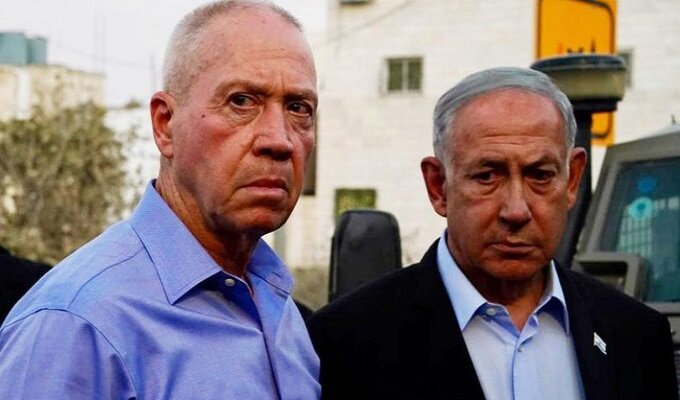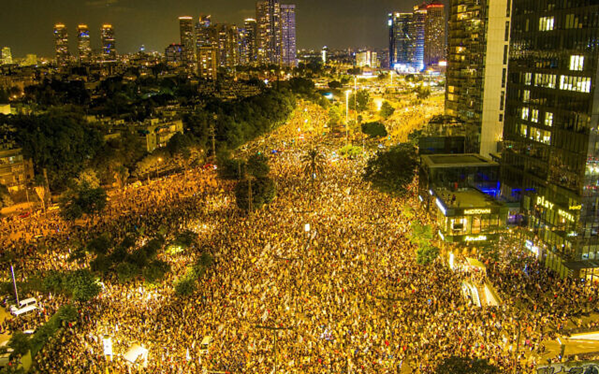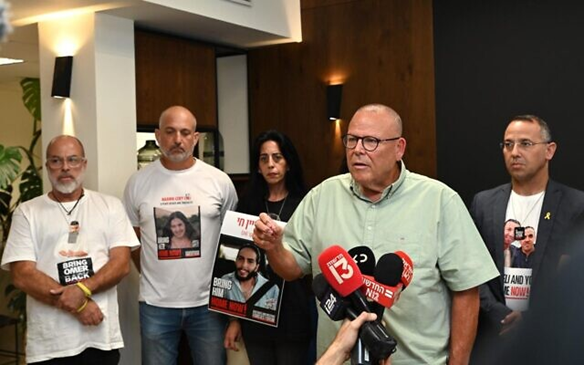What are the most important differences between Netanyahu and Tel Aviv’s military-security authorities?

Mehr News Agency, International Group: The discovery of the bodies of 6 Zionist prisoners led to the start of a new round of public demonstrations in the occupied territories for Netanyahu’s withdrawal from the condition of Israeli forces remaining in the border strip with Egypt; In particular, it has become the center of Philadelphia. Based on the published information from the Doha-Cairo negotiations, it seems that the parties to the conflict have reached a general agreement on almost all clauses and are negotiating only on how to implement them. However, Netanyahu’s insistence on not withdrawing the occupying army forces from the mentioned border line has caused the Hamas movement to reject any agreement with the occupying forces and to demand pressure from the international community on the Zionist regime to unconditionally accept Security Council Resolution 2735.
This disputed issue has not only raised the voice of Hamas or mediator actors, but the heads of security services and Israeli military commanders also believe that Tel Aviv will take a long time He doesn’t have to bargain, and to return the prisoners alive, he must immediately accept the ceasefire agreement.
The most important difference between Netanyahu and the members of the security cabinet of the occupying regime is the remaining of the Israeli army forces in the Netsarim corridor and the Philadelphia axis. The Prime Minister of Israel believes that the mentioned areas are the vital highways of Hamas, and if they are not under the control of the army, all the achievements of Israel in recent months will be lost.
In the recent cabinet meeting, he asked its members to vote for a plan that includes the presence of Israeli army forces in the Philadelphia axis in its various scenarios. During this voting, Gallant voted “negative” and Ben Goyer voted “abstention”. While Netanyahu insists on the condition that David Barne and Ronan Bar, the heads of the Mossad and Shin Bet, believe that the continuation of this situation can seriously endanger the lives of the Zionist prisoners.
Another point of difference between Zionist leaders can be seen as the difference between Netanyahu and Gallant over the number of freed prisoners. The Prime Minister of Israel believes that if a large number of Palestinian prisoners, especially its political leaders and military commanders, are released, Israel’s internal security will face a serious threat. On the other hand, Israel’s Minister of War believes that Tel Aviv has no choice but to accept this issue in order to reach an agreement. The scope of this difference can be seen in the idea of deporting Palestinian prisoners. The Zionist rightists want to deport the released prisoners to European countries, Turkey and Qatar, but Gallant and security officials believe that this could lead to international problems for Israel in the near future.
The difference in the understanding of priorities can be considered the main reason for the difference between Netanyahu, Gallant, Barne and Bar. As the prime minister, Netanyahu pays attention to issues such as maintaining the gains made in the field and not collapsing the cabinet, and military commanders and security officers, under the influence of international pressure, demand more flexibility in the negotiations to reach an agreement that provides the interests of all actors.
Netanyahu has clearly stated among his ministers that if he has to choose between prisoners and keeping the Philadelphia corridor, he will definitely choose the second one. Perhaps for this reason, the head of Mossad told her in a meeting with the mother of one of the prisoners that there is little chance that an agreement on the exchange of prisoners will be reached in the Netanyahu government. After the bodies of 6 Zionist prisoners were found, more than 350,000 people came to the streets of occupied Palestine on the evening of September 1st to voice their opposition to Netanyahu and demand a quick agreement with Hamas.
The experience of the last 10 months has shown that when Netanyahu is under severe pressure from America or public opinion, he commits “suicide” and tries to create a crisis in Outside of occupied Palestine, disrupt the focus of your opponents and critics. The illegal attack on the Iranian consulate in Damascus and the assassination of Martyr Haniyeh happened exactly when Netanyahu was under the most intense pressure to accept a ceasefire and stop fighting in Gaza.
On this basis, it is necessary for the members of the resistance network to understand Netanyahu’s political behavior and be “fully prepared” and not allow the Zionists to have a new adventure. In other words, the leader of the Likud party may take a big step towards the escalation of regional tension and the marginalization of the prisoner exchange negotiations by issuing an order to assassinate prominent resistance leaders or attack Hamas centers in Lebanon or other areas.
Bahre Sakhan
The non-return of the remaining 103 captives in the Gaza Strip can be the final seal on the political life of all Israeli political, security and military officials. Now, some families of prisoners who have lost their loved ones blame the leaders of the Zionist regime for the death of these people and may take steps to physically remove Netanyahu. The establishment of a general strike from universities to Ben-Gurin airport shows the depth of anger of Israeli society against Netanyahu. Analysts believe that with public opinion rousing against the Prime Minister and the Israeli negotiating team, it is possible that the Biden administration will use tools to pressure Tel Aviv to accept the ceasefire agreement; Although the United States is Israel’s first accomplice in committing the most heinous crimes in history against the oppressed people of Gaza.
The most important obstacle in the process of the ceasefire agreement can be considered Netanyahu’s fear of the “collapse of the cabinet” and the departure of Ben Guer, the head of the “National Power” party, from the government. Although Netanyahu has a good chance in the possible elections in the recent poll of “Ma’ariv” newspaper, there are still many “buts” and “ifs” for him and his allies to win again. In such a situation, it seems that Netanyahu is looking for some kind of guarantee from the US and public opinion that if he accepts the ceasefire and the possible fall of the cabinet, he will not only not be arrested due to a corruption case, but he will have the chance to win the elections and stay in the country. have the post of prime minister.




